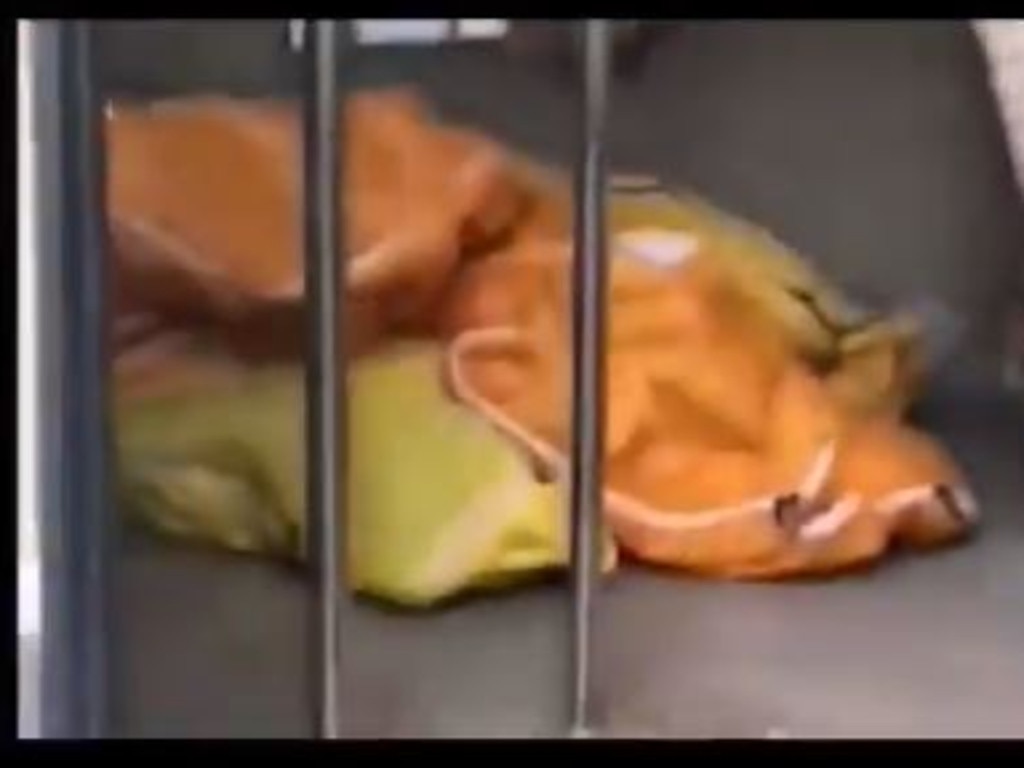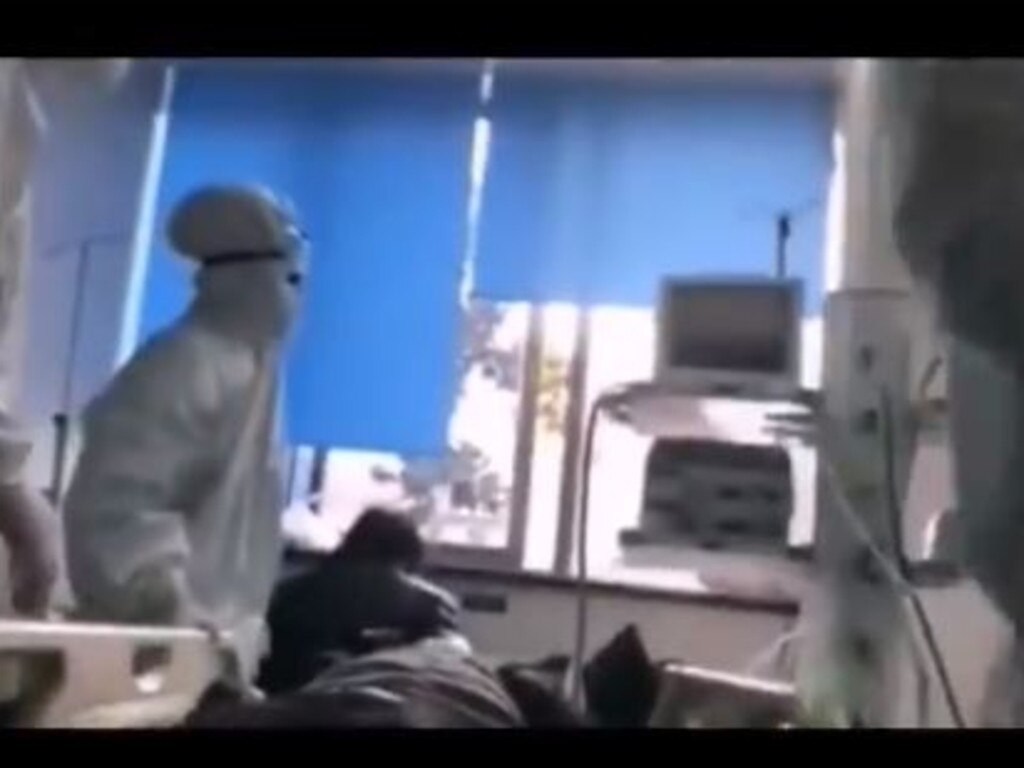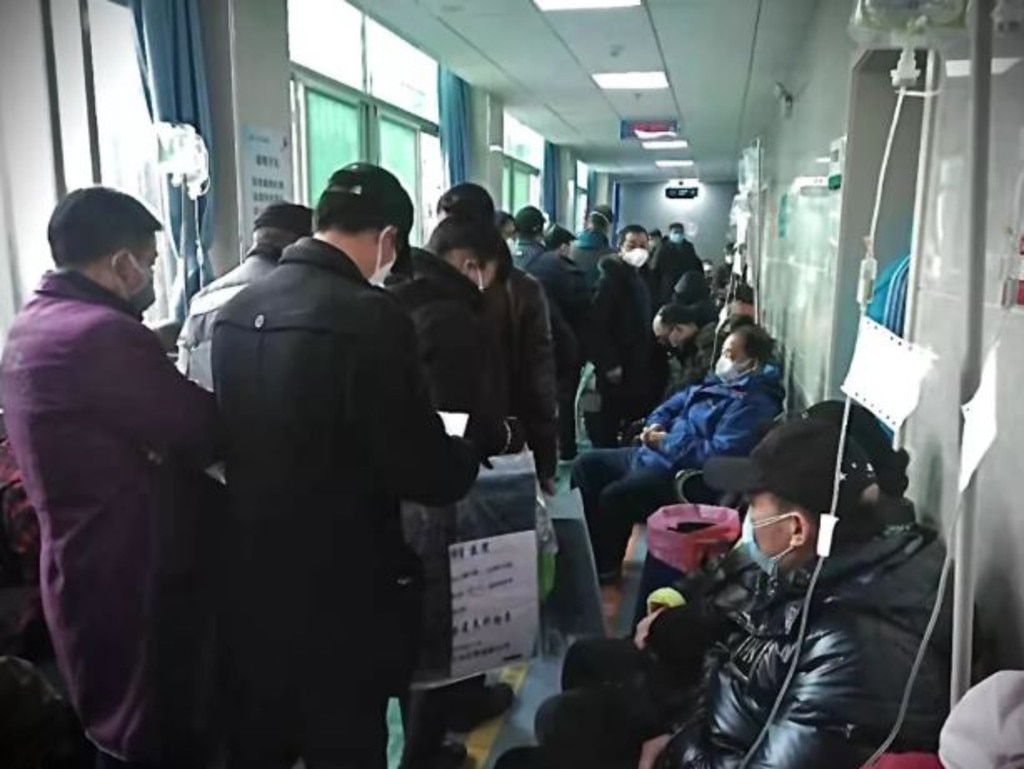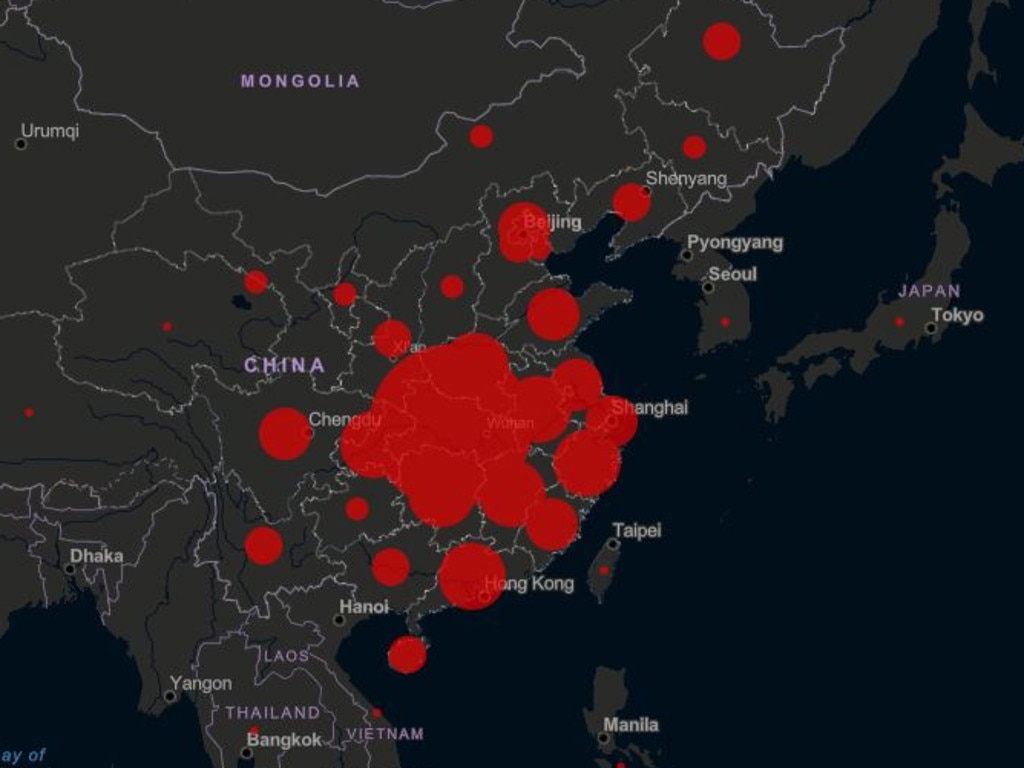Chinese authorities ban burials and funerals in favour of instant cremation
Chinese authorities have ordered the “close by and immediate” cremation of 2019-nCoV fatalities, banning burials and funerals.
News
Don't miss out on the headlines from News. Followed categories will be added to My News.
Chinese authorities have ordered all coronavirus fatalities to be cremated “close by and immediately” as infection rates soar.
The National Health Commission also banned burials and funerals to prevent the spread of the virus, which has now infected more than 17,300 people in at least 26 countries and killed 362.
The vast majority of those deaths have taken place in China, where the disease has left 55 million people in 16 Chinese cities under lockdown and massively disrupted the global economy.
On Sunday the Global Times, which is part of state run media outlet the People’s Daily, relayed a grim new government decree: burn all coronavirus corpses.
“Bodies of #nCoV2019 victims should be cremated close by and immediately,” it announced in a tweet, citing the Commission. “Burials or the transfer of bodies is not allowed. Funerals not allowed to avoid spread of the virus.”
Bodies of #nCoV2019 victims should be cremated close by and immediately. Burials or transfer of the bodies not allowed. Funerals not allowed to avoid spread of the virus: National Health Commission (File Photo) pic.twitter.com/IsAHnuY4Rk
— Global Times (@globaltimesnews) February 2, 2020
The decree received a mixed response, with some accusing China of covering up the true number of deaths by literally burning the evidence and others praising the move as prudent.
Clear case of hiding number of casualties.....
— Ankit Jain (@anksinfo) February 2, 2020
Wow, so the cremation stories are true. Crazy. #2019_nCov
— Wuhan Wayne (@WayneWuhan) February 2, 2020
common sense. It’s unfortunate that the lay public has no understanding of infectious disease.
— Kat Ken 🌵 (@KatKenn48) February 2, 2020
Claims China has been secretly cremating victims have been circulating on social media for around 10 days.
They are often accompanied by distressing no-context videos — usually from WeChat or Weibo — showing the dead lying unattended or in body bags in hospital corridors.
On February 2, Radio Free China posted a video online it said was secretly filmed at a hospital in Wuhan, Hubei province, which is the epicentre of the outbreak.
“Some Wuhan citizens entered Wuhan Fifth Hospital on February 1st and found many patients who died of pneumonia,” it tweeted.
“The corpses were packed directly to the crematorium. Paramedics are busy rescuing the dying patient.”
ã€æ¦æ±‰å¸‚第五医院最新情况】
— è‡ªç”±äºšæ´²ç”µå° (@RFA_Chinese) February 1, 2020
有æ¦æ±‰å¸‚æ°‘2月1日进入æ¦æ±‰ç¬¬äº”医院,å‘çŽ°å¤šå…·å› è‚ºç‚Žæ»äº¡çš„病人,尸体就地打包直接é€åŽ»ç«è‘¬åœºã€‚医护人员忙于抢救垂æ»çš„病人。 pic.twitter.com/CzJN4wlRQj
Two prefab coronavirus hospitals in Wuhan city, the epicentre of the virus, have been constructed in a matter of days.
Chinese state media announced on Sunday Huoshenshan Hospital would start taking patients as early as today, while a second at Leishenshan will be completed by Wednesday.
National Health Commission spokesman Jiao Yahui told Reuters the two hospitals would provide an additional 10,000 beds, enough to cope with current suspected and confirmed cases.
TRACK THE CORONAVIRUS OUTBREAK IN REAL TIME
The National Health Commission’s order for the cremations to be “immediate” and carried out “close by” raises the possibility such facilities have been built into the two new hospital complexes.


A disturbing report published in online news outlet Caijing.com.cn on February 1 claimed authorities were cremating the dead before notifying relatives and allegedly omitting cases from the official death toll.
It cited the case of a woman called Liu Mei, whose father-in-law died of pneumonia at the family home after he was turned away from multiple hospitals in Wuhan because of a bed shortage.
“On January 26, 2020, Liu Mei’s family received a cremation note. Her father-in-law, a 73-year-old, stopped breathing at home and was rushed to the hospital,” a translated version of the story said.
“Liu Mei told the Caijing reporter that the elderly (man) had symptoms of suspected new type of coronavirus pneumonia on January 21, and the diagnosis results showed that the lung was highly infected.
“After the old man was taken to the ambulance, the family never saw him again. All they received was a cremation note, indicating that the cause of the death was viral pneumonia.”
Family members told Caijing they believe his death was not included in the official death toll because he was never admitted to hospital and the coronavirus infection was only confirmed post mortem.
“The old man hastily passed away, no decent send off, no farewell by his family, and the ashes are still in the funeral parlour,” the story said.

Mission complete! 110s time-lapse video shows the construction of Wuhan’s Huoshenshan Hospital from Jan 23 to Feb 2. pic.twitter.com/cIw7SjxqHx
— People's Daily, China (@PDChina) February 2, 2020
China has been slammed for its handling of the outbreak in the crucial period between mid-December and mid-January when the virus had an opportunity to spread far and wide as millions of Chinese travelled across the country — as well as to China from overseas — ahead of Lunar New Year festivities.
Like its cousins SARS (severe acute respiratory syndrome) and MERS (Middle East respiratory syndrome) the new coronavirus, known as novel coronavirus or 2019-nCoV, previously affected only animals before jumping species to humans.
Scientists believe all three viruses originated in bats before mutating and latching on to the cells of an intermediate host — civet cats in the case of SARS and camels in the case of MERS — and mutating again to infect humans.
The 2019-nCoV outbreak has been traced to the Huanan Seafood Wholesale Market in Wuhan, where it is believed “unnatural” conditions placing exotic and domestic animals, live and dead in proximity to people, allowed the virus to make its evolutionary leap.

Last week it emerged police arrested eight Wuhan doctors on charges of “fabricating, disseminating and spreading rumours” after they posted online warnings about a mysterious new “SARS-like” virus way back in December.
The actions of police drew unprecedented criticism from the Supreme People’s Court.
“It might have been a fortunate thing if the public had believed the ‘rumours’ then and started to wear masks and carry out sanitisation measures, and avoid the wild animal market,” the court said in a statement online.
The first cases were detected on December 8 but not reported to the World Health Organisation for a month. Scientists researching the genome sequence believe the virus first appeared no earlier than October 30, 2019 and no later than November 29, 2019.
Multiple nations, including Australia and New Zealand, have temporarily suspended flights to and from Hubei province — and in some cases all Chinese cities — in a bid to contain the outbreak.
But these bans are only a few days old and given the virus was allowed to spread unchecked for at least six weeks, it seems apparent the horse has already bolted.
The WHO has said border closures would not be helpful in containing the virus and would only cause further panic and economic damage.







